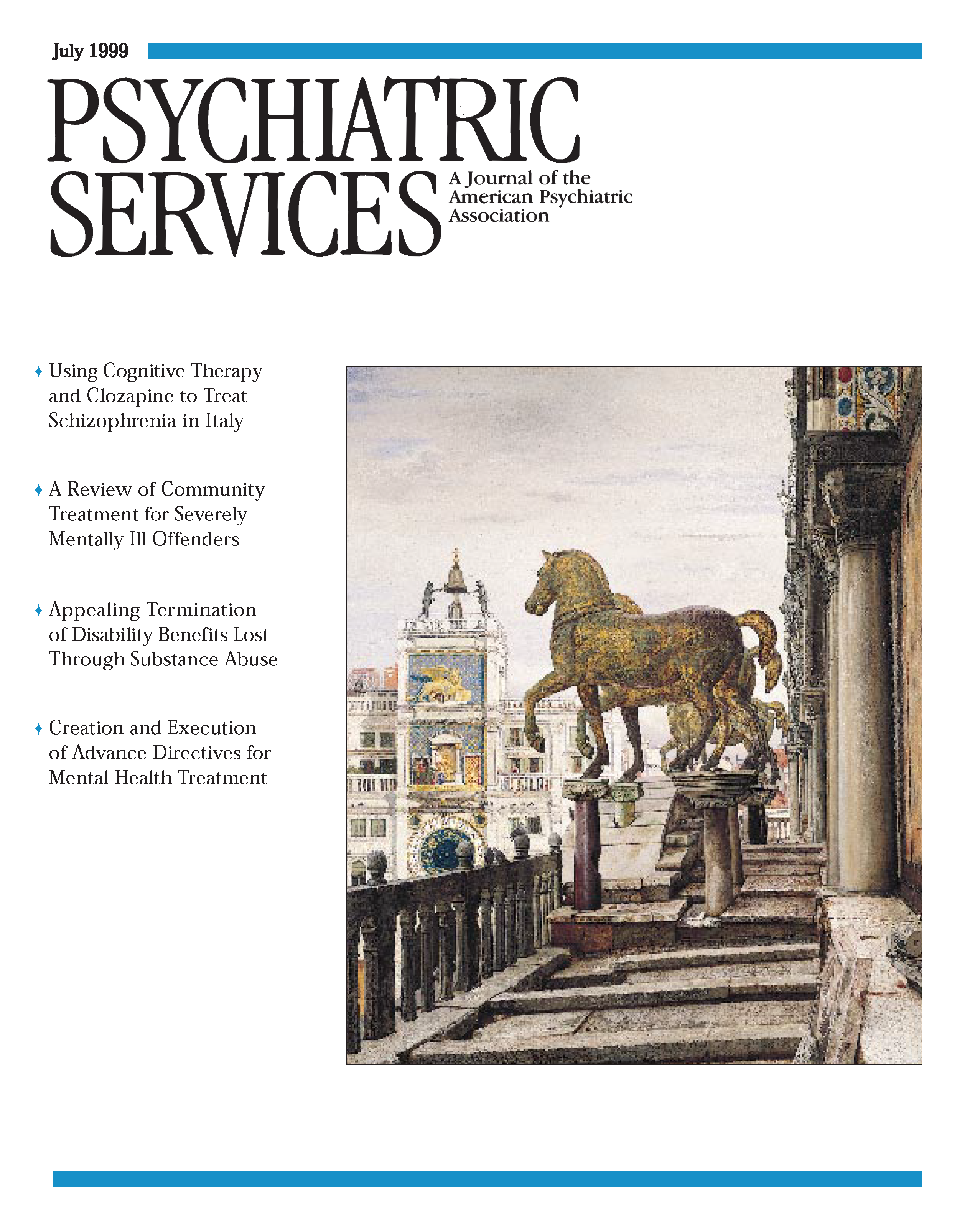To the Editor: We read with great interest the paper about medication compliance by Dr. Heyscue and colleagues (
1) in the September 1998 issue. The authors report an impressive compliance rate among attendees at a depot medication clinic, which might have been promoted by intensive follow-up on missed appointments. Most patients in the study had a long duration of illness.
Literature reviews show great variability in the factors influencing treatment compliance by patients with schizophrenia (
2). Multiple-episode patients usually adhere better to treatment. Data on first-episode patients are scarce.
We report here data on compliance by first-episode patients with schizophrenia in a hospital catchment area serving approximately 750,000 residents of Slovenia. A third of the Slovenian population resides within the catchment area, half in urban areas.
Study participants were 40 white male patients with a diagnosis of first-episode schizophrenia based on criteria in the International Classification of Diseases, Tenth Edition (ICD-10). They had been hospitalized for a mean±SD of 80.6±64.1 days in 1995 and were followed for one year after hospital discharge.
The follow-up setting was "patient friendly." All patients were individually scheduled for outpatient visits at least once a month. They could choose between outpatient clinics in the city center or in the suburbs; in either case they had the same therapist. They could also choose the date and time of the visit and could reschedule the appointment by phone if they had to miss because of somatic illness, transportation problems, or other reasons. The noncompliance criteria were very strict: one missed appointment or nonadherence to the prescribed medication regimen.
The patients' mean±SD age was 27.1±7.2 years. Ninety percent of the 40 patients (N=36) were single, and 85 percent (N=34) were living with their families. Eighty percent (N=32) lived in urban areas. Forty-five percent (N=18) were unemployed. The majority of the patients—82 percent (N=33)—had a diagnosis of paranoid schizophrenia. Twenty-five patients were on depot therapy (fluphenazine or haloperidol decanoate), while 12 received atypical antipsychotics (clozapine or risperidone), and three were on oral fluphenazine. Drug dosages were individually adjusted on the basis of effectiveness and tolerability.
Of the 40 patients in the study, 25, or 62.5 percent, dropped out, 20 in the first trimester, including seven who never showed up. Chi square and t tests were used to compare treatment-compliant and noncompliant patients on sociodemographic and treatment variables, including the geographic location of the clinic and medication side effects. No differences between the two groups were found. However, all noncompliant patients were traced during the follow-up year, and 16 were rehospitalized during that period.
Our results show that depot therapy is popular in Slovenia. However, in contrast to studies reviewed by Davis and others (
3), we could not prove better adherence to treatment by patients on depot medication, a result that might be due to our small sample. In addition, we found that the compliance rate among patients with first-episode schizophrenia was much lower than in the Heyscue study (
1).
First-episode and multiple-episode patients might differ in a number of characteristics. The findings of Dr. Heyscue and colleagues (
1) and other authors (
4) indicate that longer duration of illness and increased number of hospitalizations improve compliance, probably due to patients' better understanding of the illness. After reviewing the data from different studies, we strongly agree that more studies are needed of treatment compliance among different groups of patients with schizophrenia.

